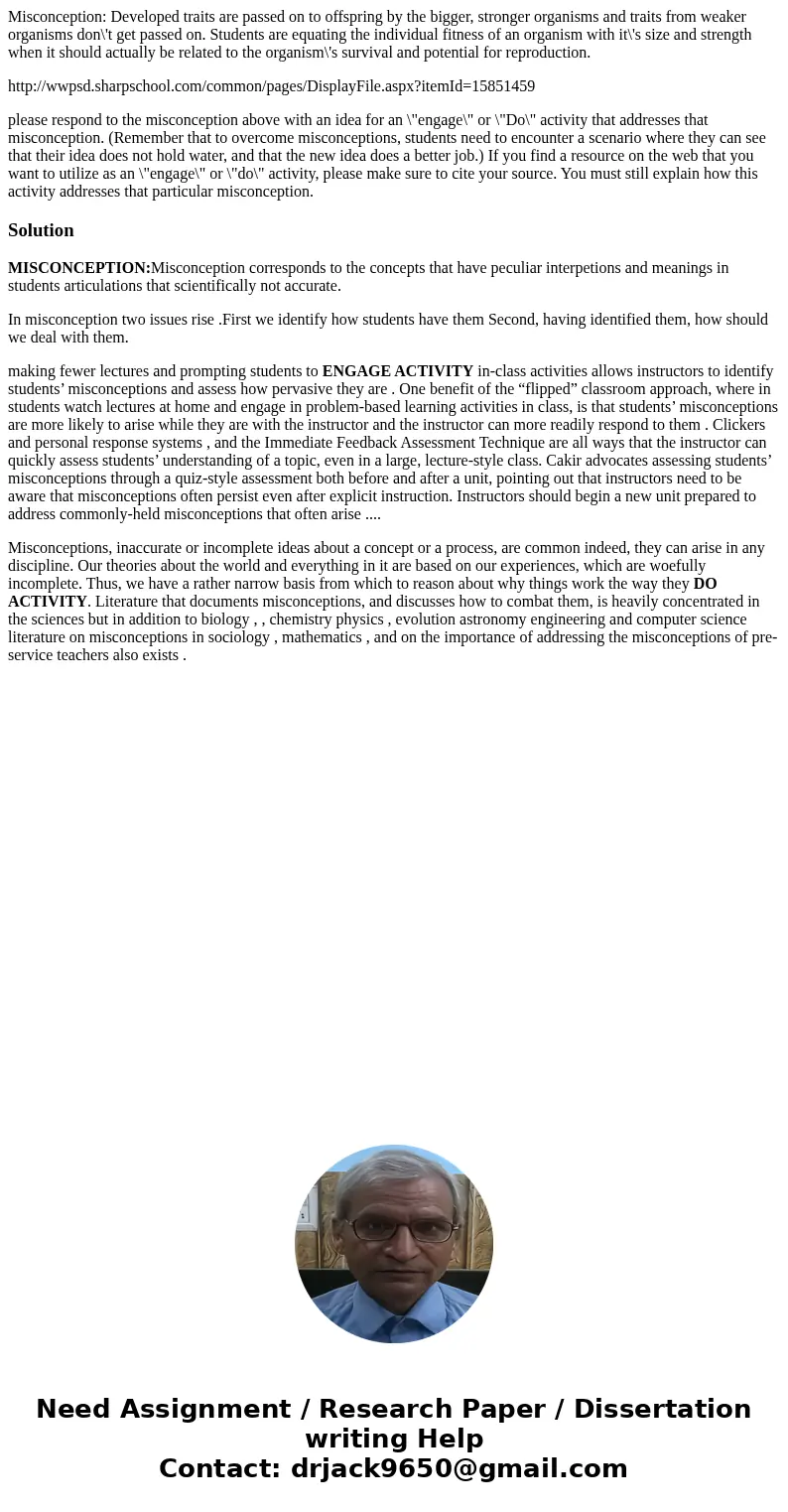Misconception Developed traits are passed on to offspring by
Misconception: Developed traits are passed on to offspring by the bigger, stronger organisms and traits from weaker organisms don\'t get passed on. Students are equating the individual fitness of an organism with it\'s size and strength when it should actually be related to the organism\'s survival and potential for reproduction.
http://wwpsd.sharpschool.com/common/pages/DisplayFile.aspx?itemId=15851459
please respond to the misconception above with an idea for an \"engage\" or \"Do\" activity that addresses that misconception. (Remember that to overcome misconceptions, students need to encounter a scenario where they can see that their idea does not hold water, and that the new idea does a better job.) If you find a resource on the web that you want to utilize as an \"engage\" or \"do\" activity, please make sure to cite your source. You must still explain how this activity addresses that particular misconception.
Solution
MISCONCEPTION:Misconception corresponds to the concepts that have peculiar interpetions and meanings in students articulations that scientifically not accurate.
In misconception two issues rise .First we identify how students have them Second, having identified them, how should we deal with them.
making fewer lectures and prompting students to ENGAGE ACTIVITY in-class activities allows instructors to identify students’ misconceptions and assess how pervasive they are . One benefit of the “flipped” classroom approach, where in students watch lectures at home and engage in problem-based learning activities in class, is that students’ misconceptions are more likely to arise while they are with the instructor and the instructor can more readily respond to them . Clickers and personal response systems , and the Immediate Feedback Assessment Technique are all ways that the instructor can quickly assess students’ understanding of a topic, even in a large, lecture-style class. Cakir advocates assessing students’ misconceptions through a quiz-style assessment both before and after a unit, pointing out that instructors need to be aware that misconceptions often persist even after explicit instruction. Instructors should begin a new unit prepared to address commonly-held misconceptions that often arise ....
Misconceptions, inaccurate or incomplete ideas about a concept or a process, are common indeed, they can arise in any discipline. Our theories about the world and everything in it are based on our experiences, which are woefully incomplete. Thus, we have a rather narrow basis from which to reason about why things work the way they DO ACTIVITY. Literature that documents misconceptions, and discusses how to combat them, is heavily concentrated in the sciences but in addition to biology , , chemistry physics , evolution astronomy engineering and computer science literature on misconceptions in sociology , mathematics , and on the importance of addressing the misconceptions of pre-service teachers also exists .

 Homework Sourse
Homework Sourse